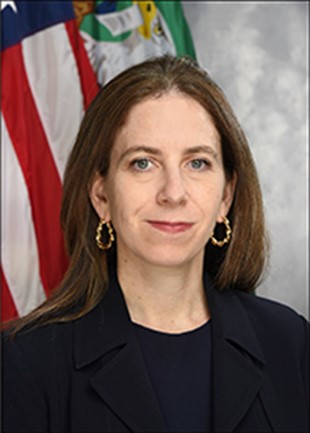Regulatory clarity and institutional-grade infrastructure are regarded as keys to taming the “wild west” of cryptocurrency markets and attracting more mainstream trading interest. In addition to advocating those works in progress, leaders in the crypto field are adopting tools and strategies that have been associated with their traditional-market counterparts.
A case in point is Circle Internet Financial and its recent selection of the Markets Surveillance solution from NICE Actimize, a leading provider of anti-crime, risk and compliance technology to regional and global financial institutions and regulators. Crypto markets have been rife with questionable and manipulative trading activity that surveillance systems are designed to detect and deter.
In a late February announcement with Circle, NICE Actimize said that it brings to the task of detecting sophisticated forms of market manipulation - including pump and dump, layering and insider trading - “a comprehensive package of surveillance models that enables global regulatory compliance across products and markets,” and “configurable rules engines [that] reduce false positives and costs by enabling firms to tailor alert thresholds to their customers' trading activity.”
Markets Surveillance also brings to bear ActOne, an artificial-intelligence-driven platform for managing financial crime investigations.
New Asset Class
The deal with Circle, a blockchain payments and digital-asset exchange company that is backed by, among other investors, Goldman Sachs Group, is a high-profile win for NICE Actimize and underscores the opportunity for surveillance products - a fast-growing segment within capital market technology - in “a new asset class,” as Cromwell Fraser of NICE Actimize's Financial Markets Compliance practice puts it.

“Like any new asset class, you need to understand how the products are traded and how they will perform,” Fraser explains. “Then you map certain behaviors you want to capture, understand the data, and you can deploy detection analytics.”
He points out that a growing number of crypto entities aim “to show that they are reputable and established. Having active controls in place is a demonstration of this. Furthermore, regulation in the crypto marketplace will happen over time, driving the opportunity for growth to conclusion even faster when that happens.”
There is plenty of potential for stronger compliance, a study of 216 crypto exchanges worldwide by London regtech company Coinfirm suggests. It found that 14% are licensed by regulators, and, as Cointelegraph reported, “69% of exchanges do not have 'complete and transparent' CDD [customer due diligence] and KYC [Know Your Customer] procedures, while only 26% introduced AML [anti-money-laundering] procedures such as monitoring transactions or recruiting a money laundering officer.”
Others in the Field
Other notable inroads have been made by Nasdaq, whose SMARTS Trade Surveillance is part of its technology offering to other financial markets and infrastructures. Gemini Trust Co., the digital-asset platform founded by Cameron and Tyler Winklevoss, announced its deployment of SMARTS in April 2018.
In March 2019, Nasdaq said that Bcause, described as “creator of the world's first full-stack cryptocurrency ecosystem,” would be using the surveillance system as part of the Nasdaq Financial Framework. “The surveillance technology powered by Nasdaq is designed to ensure that surveillance protocols fit the needs of a crypto marketplace,” the press release said. “This will help Bcause monitor its markets for manipulative activities, among other misconduct, thereby creating a safer spot and derivatives market for all participants.”
Also in March, the Small Exchange, a futures market in development, was announced as a customer of Eventus Systems' Validus Cloud Platform for real-time market surveillance.
The field is more crowded: Solidus Labs, a machine learning start-up led by former Goldman Sachs engineers, reportedly raised $3 million in seed funding early this year.
Adapting for Crypto
In a May 2018 post on The Challenges of Crypto Trade Surveillance, Trillium, another technology provider active in the securities markets, said that crypto trading is largely characterized by direct market access - that is, without intermediary brokers - and multi-venue fragmentation. As a result, “the crypto markets miss both of the layers of trade surveillance that effectively constrain spoofing in the stock and futures markets.”
Trillium concluded: “None of the above challenges are reason not to implement the spoofing controls that are within reach. Each venue can and should conduct trade surveillance of the trading within its control. Perfect should not be the enemy of the good. But to reach the level of global market integrity enjoyed by the stock and futures markets, some structural changes are needed for the crypto markets.”
NICE Actimize's Fraser said that “the same logic” applies in crypto surveillance as in other market activities.
Adaptability was key for Circle.
Robert Bench, the Boston-based company's head regulatory counsel and chief compliance officer, said, “There are a number of markets surveillance vendors that address traditional asset classes, but we needed a partner that could adapt their traditional market expertise to the unique elements of the crypto market. NICE Actimize was chosen as the partner which could offer that adaptability.”
Bench also said that “it was important that we work with a leading financial crime solutions provider like NICE Actimize . . . Circle has adopted a strong position on policy and crypto-related regulatory issues that focuses on the safety of our customers and investors. Adapting innovative technology solutions, such as the financial markets compliance solutions from NICE Actimize, to meeting the potential needs of regulators and protecting our assets brings this commitment full circle.”
Said NICE Actimize chief executive officer Craig Costigan: “NICE Actimize will continue to innovate on behalf of the newest financial product categories, including cryptocurrencies, digital wallets, and more. We recognize that Circle is a category leader committed to the highest standards of customer safeguards and are excited to be one of the industry's first financial crime solutions providers to tackle the exciting new cryptocurrency category with secure and cost-effective protections.”
Technology and Innovation
In a December 3, 2018 speech, Sigal Mandelker, U.S. under secretary of the Treasury for terrorism and financial intelligence, explained how anti-money-laundering/countering the financing of terrorism (AML/CFT) mandates extend to virtual currencies, and that enforcement efforts are being encouraged globally through the Financial Action Task Force.
“Using its technical expertise, the digital currency industry must harden its networks and undertake the steps necessary to prevent illicit actors from exploiting its services,” Mandelker said.
That same day, Treasury's Financial Crimes Enforcement Network (FinCEN) issued with the Office of the Comptroller of the Currency, Federal Deposit Insurance Corp., National Credit Union Administration, and Federal Reserve Board a “joint statement encouraging innovative industry approaches to AML compliance.”
“The joint statement recognizes that private-sector innovation, including new ways of using existing tools or by adopting new technologies, can be an important element in safeguarding the financial system against an evolving array of threats,” Mandelker said, mentioning “artificial intelligence and digital identity technologies” among the areas of experimentation.
Stressing the value of trial-and-error, she said, “For example, when banks test or implement artificial intelligence-based transaction monitoring systems and identify suspicious activity that would not otherwise have been identified under existing processes, we will not automatically assume that the banks' existing processes are deficient. In short, banks should not be deterred from testing innovative ideas out of a concern that it could lead to regulatory criticism.”
Cost Pressure
The joint statement - incorporating what Mandelker termed “an invitation to engage with your regulators on the types of innovations your institutions are undertaking or considering” - is a recognition of the rapid escalation of compliance costs and related operational complexity. Receptivity to technology as a solution became essential, Chad Hetherington, NICE Actimize's vice president of global services, observed.

Accenture's 2019 Compliance Risk Study included a global survey of 151 senior compliance officers in financial services and found that 72% are “facing quantitative cost reduction targets” even as they expect investment in compliance to continue rising. The report, released on April 1, recommended “bold and incisive thinking” toward a new operating model and “empowering a new generation of compliance officer.”
Accenture noted that “compliance officers are able to leverage artificial intelligence and natural language processing at scale in areas such as anti-money-laundering and regulatory tracking to perform existing roles more efficiently. These technologies can allow compliance officers to re-invest time in higher-value advisory support for the business and keep pace with emerging risks and a more liquid form of business change activity.”
“As financial services clients seek more tailored and instant experiences and the pace of digital innovation accelerates, the approaches to compliance that were formed coming out of the global financial crisis are no longer fit for purpose,” said Steve Culp, a senior managing director at Accenture and head of its Finance & Risk practice. “As a result, compliance departments need to pivot faster to execute their digital strategies and improve the impact and effectiveness. This requires bold leadership and large-scale transformation through AI, data and analytics, and regtech, alongside greater collaboration with industry peers to drive down ownership costs in areas such as anti-money laundering and regulatory change.”
Dialogue with Regulators
Hetherington of NICE Actimize noted that some jurisdictions “are more on the cutting edge with leveraging technology than others,” and that NICE Actimize over time has “worked to help familiarize regulators with the technology.”
Also taking note of the regulatory joint statement was IBM's Watson Financial Services, a leader in applying AI to regulatory compliance, integrating advanced technology with the expertise of Promontory Financial Group, which IBM acquired in 2016. (See IBM Connects Its AI Dots)
Watson Financial Services vice president Mark Andrews said it was not always clear to banks that regulators would be supportive of the emerging technologies, and their stated encouragement of experimentation is “significant.” Part of the educational process has been about the “black box” nature of AI and the need for explainability: “An examiner won't accept as an answer 'because Watson told me.' They will want to understand the underlying reasoning.”